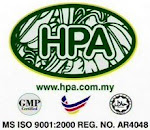SUPERVISORY SKILLS DEVELOPMENT
INTRODUCTION
The supervisory skills program has been developed to meet the needs of:
Companies that have employees with good technical abilities who have been promoted into management roles
Companies that have experienced supervisors who want or need to brush up on their supervisory skills
Most managers would say that good employee supervision is about results. But will supervisors who demand immediate and unquestioning compliance with their orders always obtain the best results? Whether or not you have the official title of "supervisor," if you are in a position that requires you to direct the activity of others, a periodic review of your supervisory skills may bring you better results.
Supervision is about building working relationships with employees. Building a trusting relationship takes time. But when supervisor and employee trust one another, both of their thoughts and efforts can be applied to each situation. The likelihood of time-wasting conflicts is reduced. The supervisor needs to be able to trust the employee to get assigned tasks done in a satisfactorily manner. The employee needs to be able to trust the supervisor to support and compensate him fairly. Employees have high expectations for leadership in the workplace. They want to be treated with dignity and respect. A strong working relationship builds the necessary commitment to get the work done.
One of the most challenging aspects of supervision is evaluation of employee performance. Evaluations should be much more in-depth than a simple judgment by a supervisor about an employee's performance. Evaluations can be a tool to improve performance by establishing goals for and recognizing outstanding performance. Conducting formal evaluations of employees on a routine basis ensures that there is adequate communication between employer and employee. Constructive feedback is a powerful tool to reinforce desired behavior because everyone likes to receive positive feedback on work well done.
Good supervisors provide training and development for their employees and are glad to make the investment in refining employee skills. This can benefit the employer by retaining employees and meeting future business needs. Many employees want to have the opportunity to take on new responsibilities and grow with an organization. Providing training and development opportunities will enable them to do this. They will be less likely to look elsewhere for work if they are satisfied with the work and future possibilities. For instance, the work nearly everyone does now involves some interface with technology. If an organization has kept technology current and has provided training for employees in using that technology successfully, employees will be more likely to stay.
More and more supervisors are relying on coaching skills for self-directed employees as opposed to directing employees to perform certain tasks. With all of the demands that fall to today's managers, delegating work and supporting employees with coaching is a better fit.Often, a supervisor's work includes resolving conflicts and managing diversity. Conflict resolution is a critical skill for those who wish to get work accomplished through others.
Maintaining a safe workplace is another primary supervisory responsibility. Setting high standards for safety communicates to employees that they are important and valued at the same time it encourages employees to do their part in maintaining a safe work environment.
Concern for regulatory compliance has grown in importance for many employers. For instance, environmental regulations require the safe disposal of hazardous materials. Responsible supervisors will ensure their employees are trained on safe handling and disposal of hazardous waste. Sharpening your supervisory skills is one of the most effective investments you can make in your company. It will result in better performance, greater employee satisfaction, a safer and healthier environment, a positive workplace and, ultimately, an improvement to the bottom line.
OBJECTIVESUpon completion of the programmed, participants will be able to:• Understand and apply the concept of supervision and relate it to the respective roles and responsibilities.• Enhance communication skills with all levels of staff for cross functional effectiveness.• Comprehend and adopt appropriate leadership skills for various situations.• Understand individual and group behavior in relation to motivation and team building.• Manage difficult staff situations in the work area.
CONTENT
TheoryThe research on effective supervision identifies numerous skills that a supervisor should possess. The Supervisory Skills Questionnaire organizes these skills into 5 categories:
Guiding the Work: Taking the direction of the organization and translating it into actionable plans for the work group.
Organizing the Work: Assigning people, equipment, and tasks to meet work goals.
Developing Your Staff: Actively working to increase the skill level of each employee being supervised.
Managing Performance: Removing the obstacles to better performance so employees can meet their own and the organization’s objectives.
Managing Relations: Developing and maintaining good relationships with other groups so that the supervisor’s employees and the organization meet their goals.
The ability to balance the goals of the organization with the needs of the work group is the common thread that runs through all of the skill dimensions.
• Defining The Supervisor• Supervisory Roles• Human Resources Management• Management Styles• Leadership Skills.• HR Policies• Management skills • Interpersonal Communication• Training and Developing employees• Managing planned change• Group dynamics/understanding individual behaviors in groups• Team and Team Building
Each session is designed to be highly interactive with one main goal of causing participants to "think differently" about their role in the overall growth and improvement of the organization. Each of these topics may be presented together or independently.
TARGET GROUP: Supervisors in manufactories and financial institutions or anyone who is in a supervisory position. This course is aimed at all personnel working in a manufacturing environment stores, planning, production distribution or any related field. The course is suitable for personnel aspiring up to a supervisory level who wish to sharpen their skills in good manufacturing and people's management.
METHODOLOGY: Lectures, video sessions, group exercises and role-play.
DURATION: 4 days
SPEAKERS:
HJ ALYAS BIN MOHAMAD; B.Tech. (Electrical Engineering) (Hons), M.Ed (Votech Edu.)
JALIL BIN A.GHANI; B. Sc (Mathematics) (Hons)
HJ MOHD SHAIFULLAH B AWG IBRAHIM; B.Sc (Physics) (Hons), M.Ed (Maths Edu)
Indicative Timetable for Training Module
Supervisory Skills Development
DAY
TIME
TOPIC
1st Day
9.00 – 10.30am
10.30 – 10.45am
10.45 – 12.15noon
12.15 – 1.30pm
1.30 – 2.30pm
2.30 – 4.00pm
4.00 – 4.15pm
4.15 – 5.45pm
Introduction & Supervisory Roles
Tea-break
Supervisory skills model
Brain & Mind
Lunch & Solat
Supervisory Management
Tea-break
Tools & Technique 1 (Workshop 1)
2nd Day
9.00 – 10.30am
10.30 – 10.45am
10.45 – 1.30pm
1.30 – 2.30pm
2.30 – 4.00pm
4.00 – 4.15pm
4.15 – 5.45pm
Motivation and Group Dynamics
Tea-break
Managing Operations
Lunch & Solat
Managing Costs and Quality
Tea-break
Tools & Technique 2 (Workshop 2)
3rd Day
9.00 – 10.30am
10.30 – 10.45am
10.45 – 1.30pm
1.30 – 2.30pm
2.30 – 4.00pm
4.00 – 4.15pm
4.15 – 5.45pm
Leadership Skills and Self-Management
Tea-break
Communications & Industrial Relations in the Workplace
Lunch & Solat
Productivity & Work Study, Training & Developing employees
Tea-break
Tools & Technique 3 (Workshop 3)
4th Day
9.00 – 10.30am
10.30 – 10.45am
10.45 – 1.30pm
1.30 – 2.30pm
2.30 – 4.00pm
4.00 – 4.15pm
4.15 – 5.45pm
Group dynamics/understanding individual behaviors in groups
Tea-break
Team and Team Building. Health and Safety in the Workplace
Lunch & Solat
Tools & Technique 4 (Workshop 4)
Tea-break
Evaluation & Closing
 Siti Hajar Aini terus membesar dengan sihat, cergas dan kuat penuh belaian kasih sayang dari abah dan umminya. Cepat memberi responces apabila namanya dipanggil oleh sesiapa sahaja.
Siti Hajar Aini terus membesar dengan sihat, cergas dan kuat penuh belaian kasih sayang dari abah dan umminya. Cepat memberi responces apabila namanya dipanggil oleh sesiapa sahaja.












